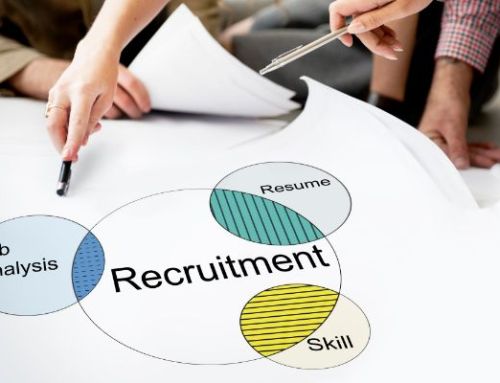Imagine, you are new to a startup. The company is growing +15% monthly (comparing to 15% annual growth for classic enterprises) in revenue. Headcount is growing as well, by 100% every year. Now, you are a 50 employee business, but in just 1 year you’ll be 100-150 employees and then 200-300 employees within the next 2 years. You have to build a solid background of corporate culture, HR policies and processes as well as HRIS to support your business growth.
- Where should you start?
- What kind of focuses should you choose?
- How big should your team be?
- How should you spend your personal time?
Also read: Key metrics that an employee management system should track
In this article, I’ll share my personal path of transition from big corporate business world to a tiny startup that is going to explode in the online tutoring market.
First Day
Spend this day with the CEO and founders to establish very clear expectations for your role and the expected outcomes for your first month and the first year. Don’t forget to cover the following questions:
- Corporate culture – how do they see it.
- Hiring plan – organizational structure, roles, seniority, priorities.
- Company strategy/pitching deck/annual objectives – to understand how HR is going to contribute and bring value to it.
- Leadership development – very often startups have first-time-leaders with no leadership experience before.
- Performance and Engagement – how the company works regarding efficiency and how people feel about themselves in the company. Discuss current attrition level and how it influences the business.
- HR team capacity and size – try to discuss how many team members you need to cover all activities, including recruiting (expecting that in average 1 IT recruiter can close 3-5 positions per month).
First Week
Since the team is probably not too big at the moment, I highly recommend that you avoid surveys, but instead go and talk to all people during 1:1s or simply over breakfast/lunch. Be prepared. I personally like to structure the information in Google docs, so I use Google Forms that are to be filled during my 1:1 with every employee; later, I can use this information to analyze what was discussed and prepare the HR audit report. Topics to cover:
- EVP analyses – I ask people what attracted them to the company, what they value right now, what motivates them at work and what may cause them leave the company. Later you will use this info for your HRPR activities (e.g., sexy open position descriptions or selling the role during the interview)
- Engagement analyses – I’m fond of Gallup Q12 questionnaire, so I ask all those 12 questions + the question about general satisfaction level and gather comments. This will show you the real situation in the company and help you to narrow your focus on the right actions in the future.
- Corporate Culture – I like this question: “Imagine this situation: you are asked to interview a person to assess how well he/she fits into your company culture. What kind of personal qualities will you be looking for?”. By having the answer to this from all the employees, you will be able to describe your company’s corporate values.
- Competencies Development Areas – Asking a question like “What kind of competencies does our company need in order to develop?”, can help you to identify your future L&D activities
- Efficiency Improving Areas – “How we can improve our performance as a company?” – this question will help you to uncover the potential ‘efficiency improving areas’.
Make sure to find time to present yourself to all the employees and to present your business ethics and aims.
First Month
While continuing to meet everyone during the 1:1s, you now also have time to focus on something else. I strongly recommend focusing on forming your HR team. You have to put all your efforts into looking for the right people for your HR team; maybe even postpone some planned HR activities if you have to. Try to meet people through your professional HR network, post vacancies on your social media and ask for recommendations. Every additional team member will help expand your HR capacity dramatically.
Also, you probably might want to focus on:
- Having regular meetings with the CEO, founders and the leaders to uncover new problems/objectives and to test your ideas and concepts
- Learning about the company history, organizational structure, business metrics etc.
- Participating in social activities such birthday celebrations, farewell parties, team buildings (or try to organize them yourself), to see the team in an unofficial environment
- Looking for HR online tools or HRIS
- Delivering quick wins to the company (you probably could improve something, that caused a lot of pain in the company, I recommend you to read this article to get a general idea
At the end of the first month, I recommend you to prepare an HR audit report and present it to the key stakeholders. You can cover the following:
- Overall engagement rate
- Attrition analytics
- Engagement factors analytics (analytics for each of Gallup Q12 questions)
- EVP description (based on employees answers)
- Efficiency and competency development areas
- Corporate culture description
- HR processes diagnosis
- HR capacity and workload
- Course of actions for the next year
Also read: The Cost of Not Focusing on Employee Engagement is Higher Than Ever
First Year
Your focuses for the first year will depend on your HR audit, but I recommend you to focus on the thing(s) that you have to do to improve HR foundation of your company:
- Corporate culture – you have to bring in the right people from the very beginning, since culture is something you never can fix without changing people.
- Performance management – proper Performance management system will help improve the overall engagement. Try to discover the Google OKR concept and approach
- Total Rewards – it’s all about connecting people’s needs with the company’s needs. By having a strong ‘Total Rewards’ approach, you’ll be able to attract, retain and motivate your employees.
That’s how it works at startups. I hope you enjoyed the article. Feel free to ask me anything in the comments below.
Download our eBook on Learning and Development Trends and find out how technology enables continuous learning in organizations.
Image licensed from Depositphotos.com
About the author
Mike Pritula, Head of Talent at Preply. Mike has over 11 years of experience in HR. He developed the EVP strategy for Wargaming, where he worked as an HR Partner; helped to win the media market for Ukrainian TV channel by building a culture of happiness for employees. Mike also won several professional awards in CIS where he is regarded to be one of the best HR professionals.






Your blog post is incredible. it such a wonderful post of startup leadership, thank you for sharing experience and ideas. Very useful, thanks for sharing